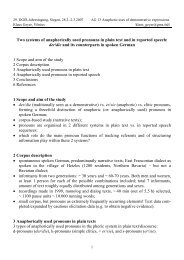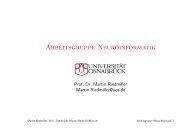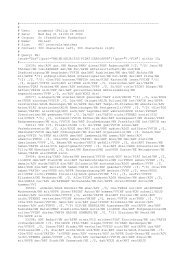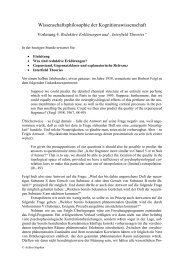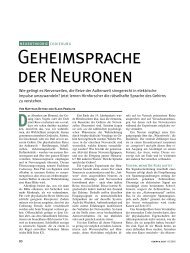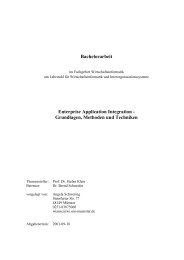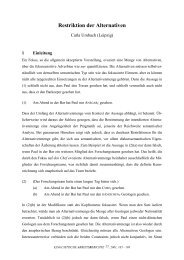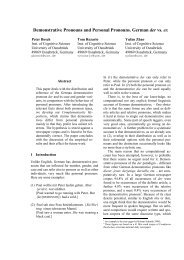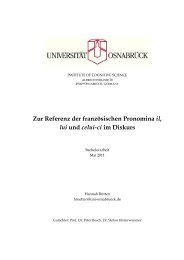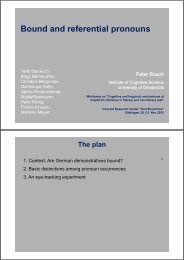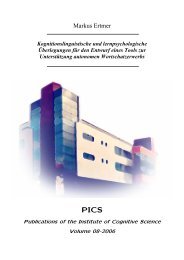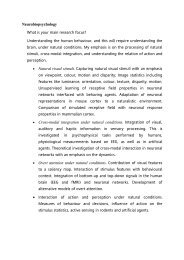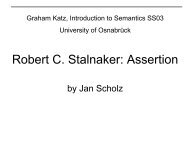Weak definites and German preposition - Cognitive Science
Weak definites and German preposition - Cognitive Science
Weak definites and German preposition - Cognitive Science
You also want an ePaper? Increase the reach of your titles
YUMPU automatically turns print PDFs into web optimized ePapers that Google loves.
<strong>German</strong> Preposition-Article Contractions<br />
- hard to pick up by anaphors<br />
If the cPP is not referential, it should not be able to establish<br />
discourse referents as easily as the rPP.<br />
This seems to be true, certainly when we compare personal to<br />
demonstrative pronouns; the cPP behaves like the indefinite:<br />
(33) Ich wollte noch zu dem Supermarkt. {Der / Er} ist nur bis<br />
7 geöffnet.<br />
(35) I still wanted to go to the supermarket? It's only open till 7.<br />
(34) Ich wollte noch {zum / einem} Supermarkt. {Der / ?# Er} ist<br />
nur bis 7 geöffnet.<br />
(36) I still want to go to a supermarket? ?# It's only open till 7.<br />
No such restriction can be observed for English WDs, due to the<br />
WD/RD ambiguity of the English PP:<br />
<strong>German</strong> Preposition-Article Contractions<br />
- hard to modify<br />
If WDs don't have the purpose of identifying referents, there is<br />
no reason why they should take modifiers whose purpose is to<br />
help identify referents.<br />
Hence the oddity of (38) <strong>and</strong> (39):<br />
(37) Warst du zu dem Supermarkt, den ich empfohlen habe?<br />
(38) ?? Warst du zum Supermarkt, den ich empfohlen habe?<br />
(39) ?? Warst du zu einem Supermarkt, den ich empfohlen habe?<br />
(40) Have you been to { the / ? a} supermarket that I suggested?<br />
There is no such problem visible in English – due to the ambiguity<br />
of the English PP.<br />
1<br />
5<br />
1<br />
6<br />
15<br />
16



